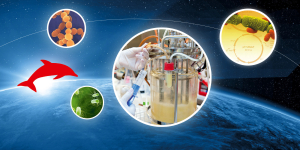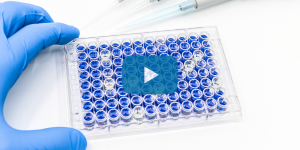Coronavirus Research
Antiviral activity of lectins
The antiviral activity of lectins is largely attributed to direct binding to viral envelope glycans and preventing entry of the virus into cells.
Lectins from various sources have been shown to exhibit potent antiviral properties by inhibiting infection of clinically important viral pathogens. The antiviral activity of lectins is largely attributed to direct binding to viral envelope glycans and preventing entry of the virus into cells. Several lectins, particularly plant lectins with affinity toward mannose and N-acetylglucosamine (GlcNAc) sugar moieties, have been identified as potential therapeutic agents in the prevention of viral transmission in human immunodeficiency virus (HIV) and coronaviruses (SARS-CoV and MERS-CoV), according to Mitchell, et al.
Based on prior studies on coronaviruses such as SARS-CoV and MERS-CoV, mannose-specific plant lectins can be used to investigate antiviral properties of the novel coronavirus SARS-CoV-2, the virus that causes COVID-19.
Our partner Vector Laboratories is an established manufacturer of many plant lectins that are described in the literature as valuable tools in ongoing research to elucidate their potential in suppression of viral activity. Below is a list of mannose-specific and mannose/glucose-specific lectins, available in unconjugated and conjugated formats.
Selected Plant Lectins from Vector Laboratories:
- Galanthus Nivalis Lectin (GNL)
- Hippeastrum Hybrid (Amaryllis) Lectin (HHL, AL)
- Narcissus Pseudonarcissus (Daffodil) Lectin (NPL, NPA, DL)
- Concanavalin A (Con A)
- Lens Culinaris Agglutinin (LCA, LcH)
- Musa Paradisiaca Lectin (BanLec)
- Pisum Sativum Agglutinin (PSA)
23.04.2020

Protein Expression
MoBiTec Cloning and Expression Vectors

Live Webinar from CU...
Mastering ELISA Techniques

Chemos
Lab Chemicals

Gene Delivery
VectorBuilder’s Premade Tools

The new Labortops 20...
Super Sale: up to 70% off labware

